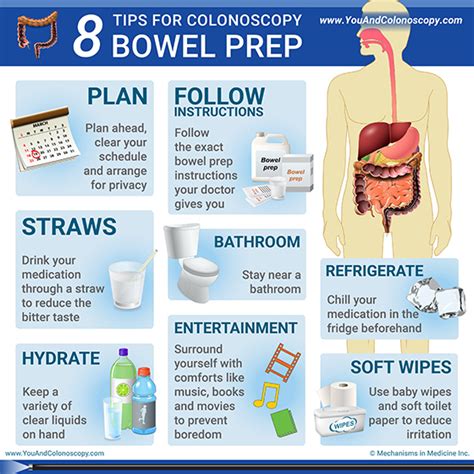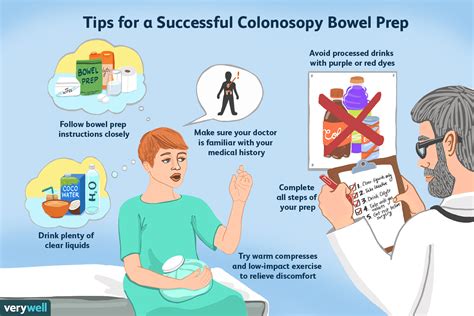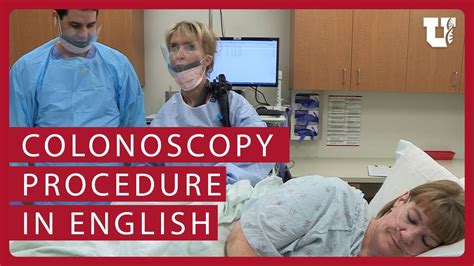Intro
Discover a comprehensive Colonoscopy Prep Guide, including bowel prep tips, colon cleanse methods, and dietary advice to ensure a successful procedure and accurate diagnosis, reducing colon cancer risks.
Colonoscopy is a crucial medical procedure used to detect and prevent colon cancer, as well as diagnose other colon-related issues. The preparation for a colonoscopy is just as important as the procedure itself, as it ensures that the doctor can get a clear view of the colon and make accurate diagnoses. In this article, we will delve into the world of colonoscopy preparation, exploring its importance, the steps involved, and providing valuable tips to make the process as smooth as possible.
The importance of colonoscopy preparation cannot be overstated. A well-prepared colon allows the doctor to detect even the smallest abnormalities, such as polyps or cancerous growths, which can be removed during the procedure. This can significantly reduce the risk of colon cancer, which is one of the most common types of cancer in the world. Additionally, a clean colon enables the doctor to take clear photographs and videos of the colon, which can be used to monitor any changes or abnormalities over time.
As we explore the world of colonoscopy preparation, it is essential to understand the different aspects involved in the process. From dietary changes to bowel preparation, each step plays a crucial role in ensuring a successful procedure. In the following sections, we will break down the colonoscopy preparation process, providing detailed explanations, practical examples, and statistical data to help readers understand the importance of each step.
Understanding Colonoscopy Preparation

Colonoscopy preparation typically begins a few days before the procedure, with dietary changes being the first step. Patients are usually advised to follow a low-fiber diet, avoiding foods such as nuts, seeds, and popcorn, which can leave residue in the colon. This diet helps to reduce the amount of stool in the colon, making it easier to clean and prepare for the procedure.
Importance of Dietary Changes
Dietary changes are a critical aspect of colonoscopy preparation. By following a low-fiber diet, patients can help reduce the risk of complications during the procedure and ensure that the doctor can get a clear view of the colon. A study published in the Journal of Clinical Gastroenterology found that patients who followed a low-fiber diet before their colonoscopy had a significantly lower risk of complications compared to those who did not.Step-by-Step Guide to Colonoscopy Preparation

The actual preparation for a colonoscopy typically begins the day before the procedure. Patients are usually given a bowel preparation kit, which contains a laxative that helps to clean out the colon. The kit may also include other medications, such as anti-nausea medication, to help manage any side effects.
Here is a step-by-step guide to colonoscopy preparation:
- Stop eating solid foods and start a clear liquid diet the day before the procedure
- Take the bowel preparation medication as directed, usually in the evening or early morning
- Stay hydrated by drinking plenty of clear liquids, such as water, broth, or electrolyte-rich beverages like sports drinks
- Avoid drinking any liquids that are red or purple, as they can interfere with the procedure
- Take any prescribed medications as directed, unless otherwise instructed by the doctor
Bowel Preparation Medications
Bowel preparation medications are a crucial aspect of colonoscopy preparation. These medications help to clean out the colon, removing any stool or debris that may be present. There are several types of bowel preparation medications available, including polyethylene glycol (PEG) and sodium phosphate. A study published in the Journal of Clinical Gastroenterology found that PEG was more effective than sodium phosphate in cleaning the colon, but both medications were well-tolerated by patients.Tips for a Successful Colonoscopy Preparation

While colonoscopy preparation can be challenging, there are several tips that can help make the process easier. Here are some tips to keep in mind:
- Start preparing early: Give yourself plenty of time to prepare for the procedure, and make sure to follow the instructions provided by the doctor or nurse.
- Stay hydrated: Drink plenty of clear liquids to help prevent dehydration and electrolyte imbalances.
- Use a bowel preparation kit: These kits contain everything you need to prepare for the procedure, including the bowel preparation medication and any other necessary supplies.
- Avoid certain medications: Certain medications, such as blood thinners, may need to be stopped before the procedure. Be sure to discuss any medications you are taking with the doctor or nurse.
- Get plenty of rest: Try to get plenty of rest the day before and the day of the procedure, as this can help reduce stress and anxiety.
Common Challenges and Solutions
While colonoscopy preparation can be challenging, there are several common challenges that patients may face. Here are some common challenges and solutions:- Nausea and vomiting: Take anti-nausea medication as directed, and try to stay hydrated by drinking plenty of clear liquids.
- Bloating and gas: Try to avoid eating foods that are high in fiber, and take any prescribed medications to help manage symptoms.
- Constipation: Take the bowel preparation medication as directed, and try to stay hydrated by drinking plenty of clear liquids.
Conclusion and Next Steps

In conclusion, colonoscopy preparation is a critical aspect of the colonoscopy procedure. By following the steps outlined in this article, patients can help ensure a successful procedure and reduce the risk of complications. Remember to stay hydrated, follow the instructions provided by the doctor or nurse, and take any prescribed medications as directed.
If you have any questions or concerns about colonoscopy preparation, be sure to discuss them with the doctor or nurse. They can provide personalized guidance and support to help you prepare for the procedure.
What is the purpose of colonoscopy preparation?
+The purpose of colonoscopy preparation is to clean out the colon and remove any stool or debris that may be present, allowing the doctor to get a clear view of the colon and make accurate diagnoses.
How long does colonoscopy preparation take?
+Colonoscopy preparation typically takes several hours to a full day, depending on the type of bowel preparation medication used and the individual's response to the medication.
What are the common side effects of colonoscopy preparation?
+Common side effects of colonoscopy preparation include nausea, vomiting, bloating, and gas. These side effects are usually mild and temporary, but can be managed with medication and other interventions.
We hope this article has provided you with a comprehensive guide to colonoscopy preparation. If you have any further questions or concerns, please don't hesitate to reach out to your doctor or nurse. Remember to stay informed, stay prepared, and take control of your health. Share this article with your friends and family to help spread awareness about the importance of colonoscopy preparation. Together, we can reduce the risk of colon cancer and improve overall health outcomes.
